La déformabilité des globules rouges un marqueur de suivi clinique
LE SEPSIS
La déformabilité des globules rouges, un marqueur de pronostic précoce et de sévérité du sepsis
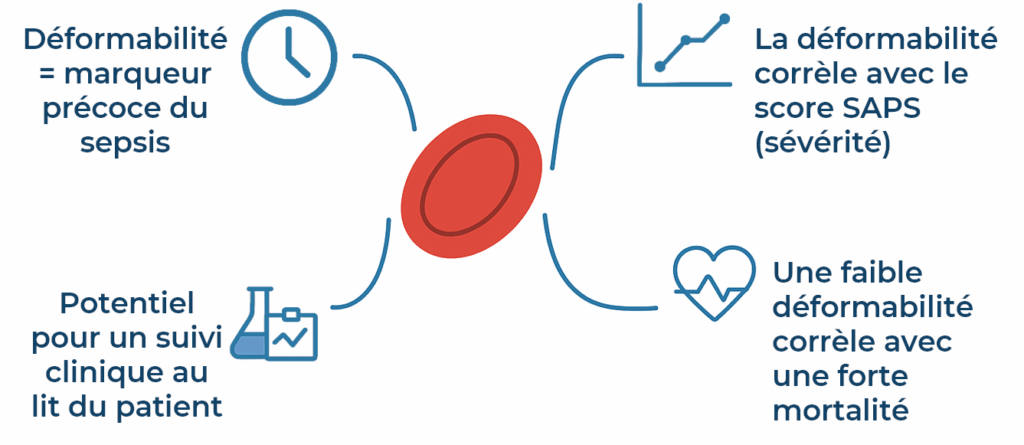
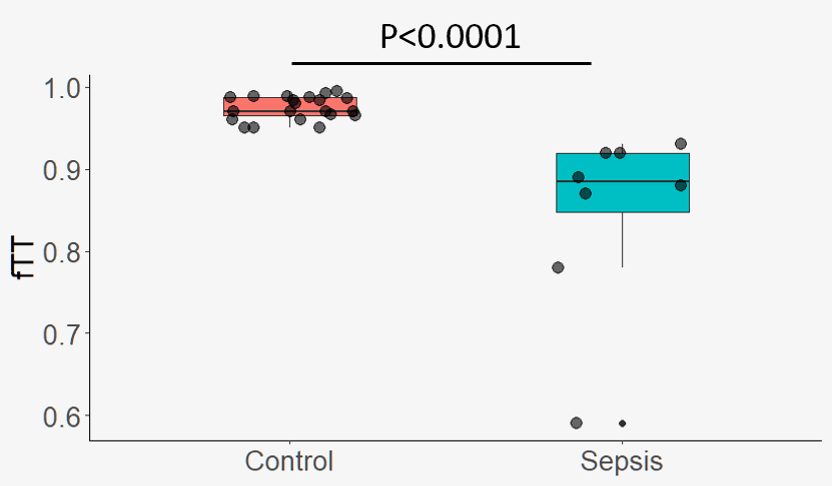
Le marqueur fTT est sensible à la survenue du Sepsis
ICOVELL a l’ambition d’améliorer la survie des patients en fournissant un marqueur précoce et prédictif de la sévérité du sepsis
DYNARED, une technologie délocalisée aux services d’urgence ou au chevet du patient
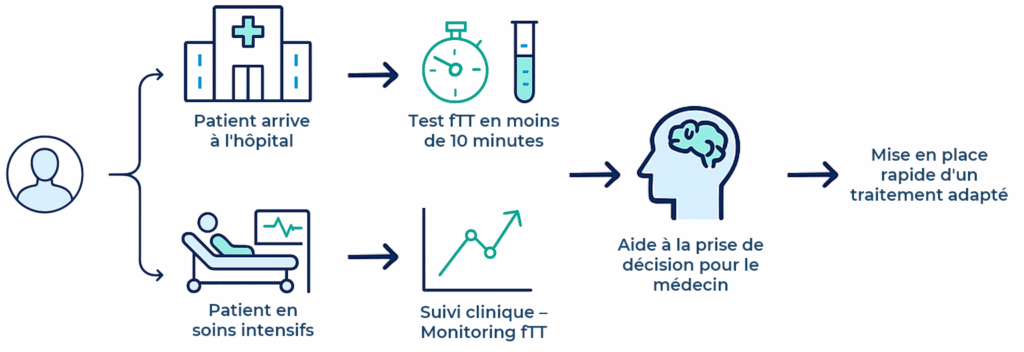
- Katia Donadello et al. Reduced red blood cell deformability over time is associated with a poor outcome on septic patients, Microvascular Research 2015, DOI: 10.1016/j.mvr.2015.05.001
- A.G. Moutzouri et al. Red blood cell deformability in patients with sepsis: A marker for prognosis and monitoring of severity, Clin. Hemorheol. Microcirc. (2007), PMID: 17502699
LA DREPANOCYTOSE
fTT, un marqueur pour une meilleure prise en charge des patients drépanocytaires
Le marqueur fTT permet de discriminer les patients HbSS des patients HbAA (contrôles sains) et HbAS (heterozygotes/trait).
Il corrèle avec HbF, HbS, des marqueurs d’hémolyse et d’inflammation.
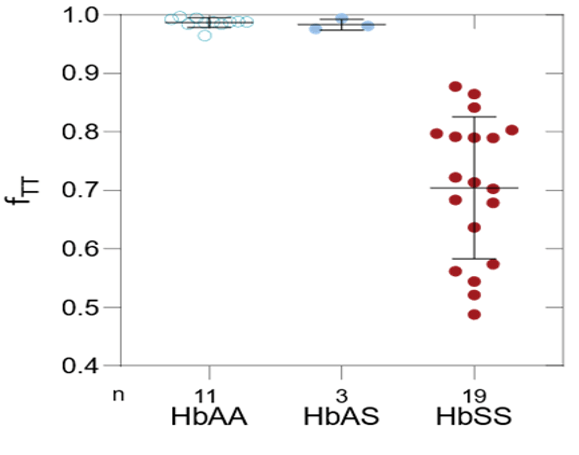
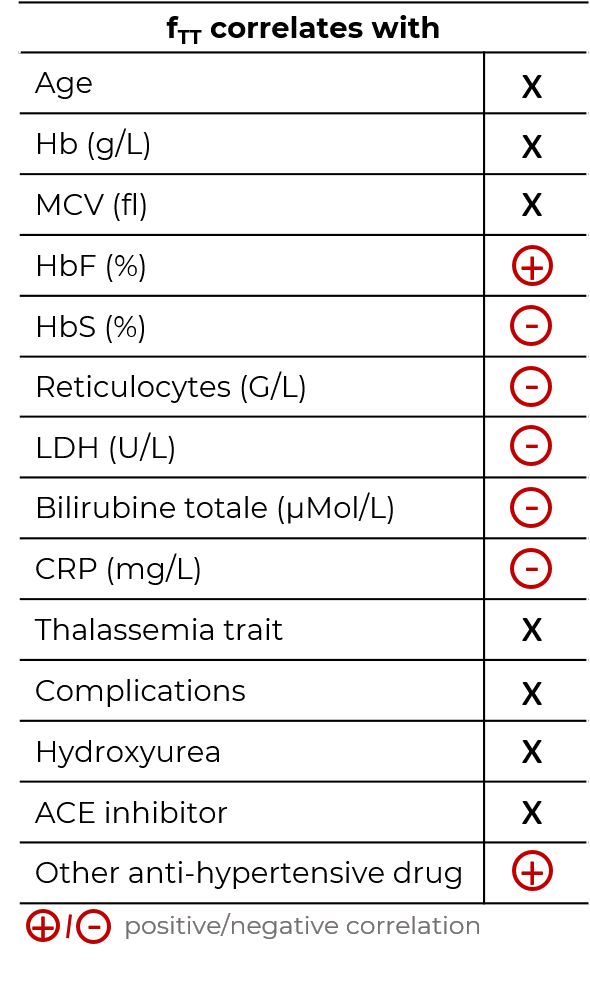
fTT, un marqueur pour prédire la survenue des crises vaso-occlusives à court terme
fTT correle avec les paramètres associés aux crises vaso-occlusives: densité et hydratation des globules rouges, et douleur du patient.
Les patients en crise vaso-occlusive ont des valeurs de fTT plus basses.
Chaque patient a une valeur de fTT basale qui lui est propre et qui baisse quelques heures avant la survenue d’une crise.
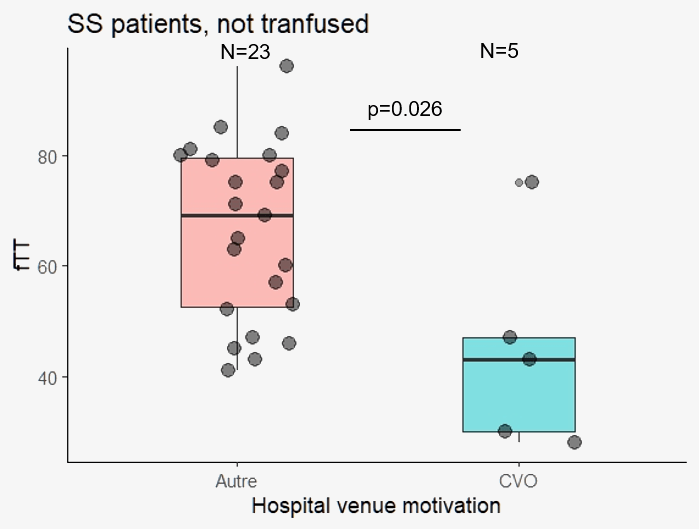
- A novel red blood cell deformability biomarker is associated with hemolysis and vaso-occlusive crises in sickle cell disease. M. Sahun, E. Bernit, S. Atwell, A. Hornung, A.M. Charrier, I. Agouti, N. Bonello-Palot, M. Cerino, E. Helfer, C. Badens, A. Viallat, Scientific Reports 15, 15864 (2025). DOI: 10.1038/s41598-025-00152-w
- Dynamics of individual red blood cells under shear flow: a way to discriminate deformability alterations. Atwell, S., Badens, C., Charrier, A., Helfer, E., & Viallat, A. Frontiers in Physiology, 12, 2406 (2022). DOI: 10.3389/fphys.2021.775584


